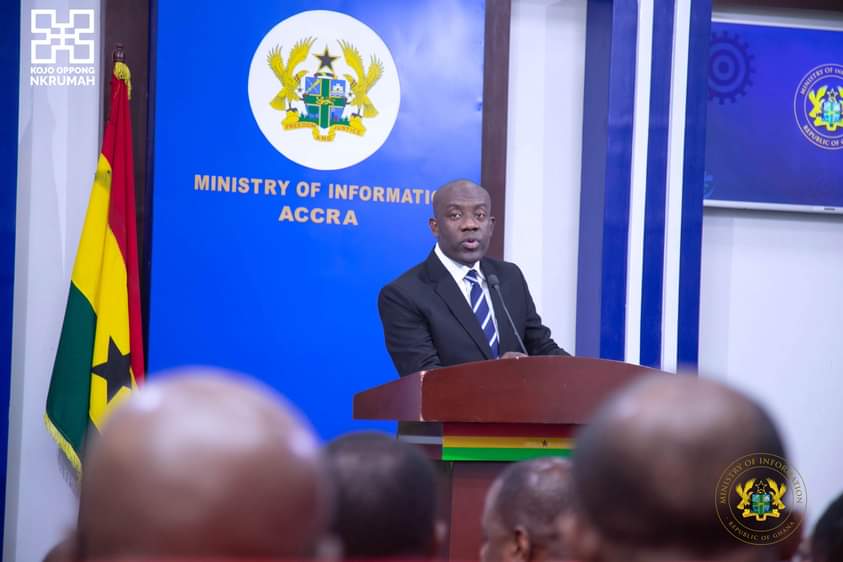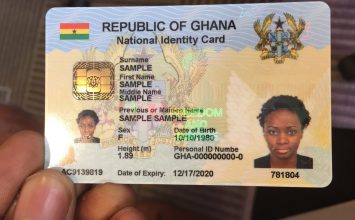
By Micheal Duodu-Sakyiama
The electioneering season is the most important season in any democratic process, filled with various activities where different candidates and political parties try to win the confidence of the electorate.
This is where access to information becomes paramount, as it allows the public to have complete and precise information that will enable them to make informed decisions regarding which candidates and policies best echo their values and interests.
Access to information encompasses a range of elements which includes details about the candidates, party ideologies, and proposed policies. It also involves a good understanding of the election process itself, including information on registration requirements, means of voting, deadlines, and other stakeholders expected to play active roles in the electioneering processes, like election observers and security operatives.
The Electoral Commission and political parties, in this regard, play a vital role in the provision of the needed information to help the public. When voters are provided with easy access to information, they feel better equipped to participate in the democratic process, discuss issues, and finally vote with confidence.
With the advent of digital media and social media platforms, there has been a dramatic change in how information is disseminated. Social media platforms, news outlets, and official campaign websites become some of the important sources during electoral periods.
This also raises fears about misinformation and potential manipulation, hence emphasizing the need for critical assessment by voters of sources and authentication of information, where necessary. In this respect, it is important that duty bearers, especially representatives from public institutions and agencies, respond promptly and provide accurate answers to applications submitted for information.
Apart from empowering individuals, wider access to authentic information encourages a more open electoral process. Transparency is enhanced since candidates and political parties will be more accountable to a better-informed electorate.
Advocating transparency is important to nurture trust in the political system and to ensure that elected officers are representatives of the will of the people, and this can be achieved through proper adherence to the tenets of the Right to Information Act, 2019 (Act 989).
Act 989 provides clear guidelines towards accessing information from public institutions and relevant private bodies, as well as the responsibilities of public officials towards providing information to applicants within the stipulated timelines.
It is also encouraging to note that information can be applied for in a written or oral format at no cost to the applicant. The applicant is required to provide a valid identity card for verification.
It is the responsibility of the Information Officer at the public institution to reduce the oral application to a written statement and there must be a witness to attest that the oral application reproduced on the paper is exactly what the applicant applied for.
The Information Officer must acknowledge receipt of the application and has within fourteen (14) days to grant, deny, transfer, refer or defer the supply of information to the applicant. In the instance where access to information is denied, the Information Officer must provide a reason(s) for the denial.
If the applicant is not satisfied with the reason(s) for denial, he can trigger an internal review with the Head of the public institution, who has a responsibility either to affirm the decision of the Information Officer or grant access to the applicant.
If the applicant is not satisfied with the response from the Head of the public institution, or even does not hear from the Head of the public institution, an appeal can be made to the Right to Information Commission (Commission) for a determination.
The Commission has the powers to make consequential orders against erring public institutions and instruct the public institution to provide the information to the applicant. The court is the final stage to seek redress if either party, that is, the applicant or public institution, is not satisfied with the determination made by the Commission.
In conclusion, access to information is not only a fundamental human right, but it is also a constitutional right of every person within the geographical space of Ghana.
The electioneering season underscores the importance of access to information as a cornerstone of a functioning democracy. It enables voters to make informed choices, holds candidates accountable, promotes an engaged and informed citizenry and, to a large extent, helps to curb misinformation, which is essential for the health of any democratic society.
The post Electioneering season and the importance of access to information appeared first on The Business & Financial Times.
Read Full Story

















Facebook
Twitter
Pinterest
Instagram
Google+
YouTube
LinkedIn
RSS